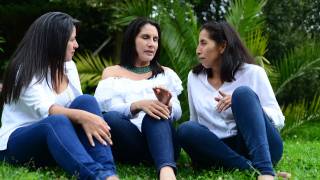X Accurately Corrects Vaccine Misinformation by 97%

Recently, U.S. Food and Drug Administration Commissioner Robert Califf M.D. argued vaccination is approaching a dangerous tipping point because of social media misinformation.
As the proliferation of misinformation continues to pose a significant challenge on social media platforms in 2024, research published by the University of California, San Diego, offers hope when searching for fact-based vaccine information.
A Resarch Letter published in JAMA led by John W. Ayers, Ph.D., from the Qualcomm Institute within UC San Diego, finds that X's Community Notes, a crowdsourced approach to information management, helped counter false information about COVID-19 vaccines with accurate, credible responses.
“Since the World Health Organization declared an ‘infodemic’ of vaccine' misinformation, there have been surprisingly few achievements to celebrate,” said Ayers, vice chief of innovation in the Division of Infectious Disease and Global Public Health at UC San Diego School of Medicine and Deputy Director of Informatics at the Altman Clinical and Translational Research Institute in addition to Qualcomm Institute scientist, in a press release on April 24, 2024.
“X Community Notes have emerged as an innovative solution, pushing back with accurate and credible health information.”
In late 2022, X introduced Community Notes—a paradigm shift in the fight against misinformation.
This novel approach empowers volunteer, independent, anonymous, and ideologically diverse contributors to identify misinformation-laden posts and rectify it by appending informative "Notes" to suspect posts.
The fact-checking process is controlled by the public instead of decision-makers at the company.
“Because Community Notes is a uniquely open-sourced misinformation countermeasure, it can be studied and improved using the scientific method,” added Allen."
The research team obtained all notes that mentioned terms related to vaccines or COVID along with their corresponding posts made during the first year of the Community Notes program, from December 12, 2022, through December 12, 2023.
The sample of notes studied was attached to posts that averaged 1,064,981 views, extrapolating to between 500 million and 1 billion views for all COVID-19 vaccination-related posts noted. Of 45,783 notes, 657 address COVID-19 vaccination, with the monthly rate of notes increasing from 22 to 186 during the study.
Of the Notes examined, 51% addressed adverse events attributed to COVID-19 vaccination, 37% conspiracy theories, 7% vaccine recommendations, and 5% vaccine effectiveness.
In terms of accuracy, 97.5% of notes were entirely accurate.
In terms of sources, 49% of notes cited highly credible sources (such as primary data sources, like peer-reviewed studies); 44%, moderately credible sources (such as major news outlets or fact checkers); and 7%, low credibility sources (such as blogs or tabloids).
"Our study shifts the focus from talking about misinformation to taking action, offering practical insights into social media strategies that protect public health," explained Mark Dredze, Ph.D., the John C Malone Professor of Computer Science at Johns Hopkins University and study co-author.
"Although we couldn’t examine how these Notes directly influenced people's beliefs or actions, the characteristics we analyzed have consistently been shown to predict a message's effectiveness."
A recent study presented at the European Society of Clinical Microbiology and Infectious Diseases Global Congress analyzed tweets with the hashtag "vaccine" published on Twitter from 2018 through December 2022. A total of 567,915 tweets were extracted and analyzed, with 458,045 classified as negative and 109,870 as positive by a machine-learning algorithm.
The analysis announced on April 27, 2024, also found that spikes in the number of negative tweets coincided with announcements from governments and healthcare authorities about vaccination.
As of April 30, 2024, vaccine misinformation continued to confuse X readers. For example, access to travel vaccines is a crucial area of confusion for vaccines such as the following:
- Valneva SE's IXCHIQ® Chikungunya Vaccine
- Takeda's QDENGA Tetravalent Vaccine
- Immunotek S.L. Uromune™ MV140 Recurrent Urinary Tract Infection (UTI) inactivated, oral spray vaccine
While X's CommunityX'stes can address online misinformation, Precision Vaccinations publisher Don Hackett adds that doctors, nurses, and pharmacists have proven to be the most trusted sources of vaccine information in local communities for decades.
Our Trust Standards: Medical Advisory Committee



